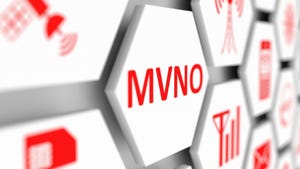Redknee – NSN deal is all about customers
Speculation over the likely purchaser of Nokia Siemens Networks’ BSS assets was ended with the announcement on 5th December that Canadian BSS solutions vendor Redknee is to acquire most of them for around €40m and in the process give a massive boost to its customer base. Until very recently, Ericsson and Amdocs were being tipped as likely contenders but few pundits had seen Redknee waiting in the wings.
December 6, 2012

By Peter Dykes
Speculation over the likely purchaser of Nokia Siemens Networks’ BSS assets was ended with the announcement on 5th December that Canadian BSS solutions vendor Redknee is to acquire most of them for around €40 million and in the process give a massive boost to its customer base. Until very recently, Ericsson and Amdocs were being tipped as likely contenders but few pundits had seen Redknee waiting in the wings.
For NSN the deal was simply part of the contraction strategy the company announced at the end of last year and is the latest in a series of garage sales of the joint venture’s unwanted assets over the last 12 months. For Redknee however, the purchase was all about expansion and specifically, it was about customer numbers and global footprint. Redknee is indeed acquiring most of NSN’s @Once range of BSS products, with the exception of some core network-related mediation, PCRF assets and the company’s GSM-R business, but it was very obvious during the investor’s call following the announcement that the big prize was a vastly expanded customer base.
Redknee CEO Lucas Skoczkowski, told analysts that of the 130 service provider customers that came with the deal, 90% were net new additions to Redknee’s books and that 85 of these were major operators using NSN’s converged billing platform; a core area for Redknee. He added that half of the acquired customer base consisted Tier 1 operators and that 50% of revenues generated by this group was spread across 35 companies, meaning that going forward, Redknee would not be relying on revenues from just a few large licenses.
Geographically, the deal was good for Redknee too. Of the 90 countries in which NSN’s soon-to-be former BSS customers reside, Skoczkowski said that Redknee had a presence in 40 at the most. In addition, apart from effectively more than doubling the purchaser’s global footprint, the deal has given Redknee the human resources to support its new customers in those regions with the transfer of some 1,200 NSN employees scattered strategically across the globe.
In terms of products, there at first appears to be much duplication between Redknee and NSN’s BSS portfolios however closer examination of the product lines reveal that they are in many ways complimentary because the companies have been addressing different market segments. Put simply, Redknee has developed broader range of BSS capabilities, whereas NSN has concentrated on scaleable systems more suited to high-tier operators. Skoczkowski says that combining the two product sets into a single portfolio could take up to two years to complete .
Informa viewpoint.
This is a positive move for Redknee. The deal represents a very large step up the BSS vendor league table for the company in terms of the increases in its customer base, global reach and revenues, as well as greatly extending its product portfolio and its addressable market sectors. It is likely however that the customer additions and improved geographical reach weren’t quite so important to potential suitors such as Ericsson and Amdocs, for whom the increases were proportionally smaller in relation to their existing footprints, hence their eventual lack of interest.
While Redknee still lacks expertise and products in areas such as analytics and OSS/BSS provisioning across multi-play networks, this deal is unlikely to have a negative impact on any part of the company’s business. Indeed, it should help the company to fund expansion into those areas of in which its portfolio is currently lacking.
Read more about:
DiscussionYou May Also Like








.png?width=300&auto=webp&quality=80&disable=upscale)


_1.jpg?width=300&auto=webp&quality=80&disable=upscale)